Episodes
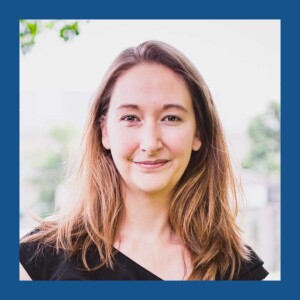
Thursday Jul 15, 2021
Thursday Jul 15, 2021
Contribue à la production de Papa PhD sur Patreon !
Ou ravitaille David en café :)
Salut! Avant de te présenter l'invitée d'aujourd'hui, et pour célébrer les deux ans de Papa PhD, j'aimerais t'étendre une invitation, directement à toi.Si un des épisodes de Papa PhD a suscité chez toi une question, ou si tu aimerais que je temette en contact avec les gens que tu vois passer sur le podcast, ou, encore, ou si tu aimerais contribuer d'une façon ou d'une autre à Papa PhD, avec des suggestions ou même du contenu, écris-moi à david@papaphd.com.Ça me fera plaisir de te répondre et, éventuellement, d'en discuter avec toi. Je réfléchis en ce moment à la Saison 3, et c'est le moment de brasser des idées! Donc, n'hésite pas!Et en parlant de brassage d'idées, dans la conversation que je partage avec toi cette semaine, j'ai le plaisir de t'apporter Emilie-Jade Poliquin, qui travaille à la direction générale de l'INRS, et avec qui j'ai parlé des mythes qui entourent la question des débouchés professionnels pour les docteur.e.s.
Ce que tu apprendras dans cet épisode :
Comment l'implication dans les associations étudiantes a enrichi le parcours académique d'Emilie-Jade et lui a apporté d'intéressantes compétences transversalesPourquoi le choix d'université est important si l'associativisme t'intéressePourquoi le mythe selon lequel la vie des étudiants aux cycles supérieurs doit être monastique est dangereuxComment échapper à l'effet tunnel pendant don doctoratLe discours pernicieux autour du plan B, au doctorat, teinté de la notion d'échecPourquoi il faut déboulonner le mythe de la surqualification des docteur.e.sL'important d'avoir des différents modèles de parcours après le doctorat sur lesquels s'inspirerLes portes qui s'ouvrent à nous quand on prend l'approche "multivers" d'options de carrièreComment répondre à la question "Mais pourquoi tu as fait un doctorat, alors?" en entrevue d'emploiTu aimes Papa PhD ? Laisse-moi un commentaire ici - une courte phrase suffit ! Et inclus ton identifiant Twitter – comme ça je pourrai te remercier personnellement !
Emilie-Jade Poliquin est conseillère en relations gouvernementales à la direction générale de l’Institut national de la recherche scientifique (INRS). Au cours de ses études aux cycles supérieurs, réalisées à l’Université Laval en cotutelle avec l’Université Toulouse II Jean-Jaurès, et de son stage postdoctoral fait à l’Université Columbia de New York, elle s’est principalement intéressée à la mise en forme de la connaissance scientifique à l’époque gréco-romaine. Ses nombreuses implications, dans des associations étudiantes notamment, ont marqué son parcours et l’ont poussé à s’interroger sur les moyens de mieux préparer la communauté étudiante aux cycles supérieurs à leur arrivée sur le marché du travail. Elle tient depuis janvier 2021 une chronique nommée « Prof ou pas » dans le magazine Affaires universitaires.
Merci Emilie-Jade!
Si cet entretien avec Emilie-Jade Poliquin t'a plu, fais-lui en part en cliquant sur le lien ci-dessous et en lui laissant un message sur LinkedIn :Clique ici pour la remercier sur LinkedIn !Clique ici pour partager avec David le principal message que tu retiens de cet épisode !
Télécharge la "Boîte à outils pour le doctorat" maintenant !
Les perles de sagesse d'Emilie-Jade :
« Moi, si j'ai un message à passer, c'Est de toujours essayer de garder un contact avec la réalité. Que ça soit par le sport, que ça soit par la culture, en faisant de la musique ou du théâtre, les implications, le bénévolat, que ça soit à l'intérieur ou à l'extérieur de l'université, c'est un moyen de garder notre tête sur nos épaules. Mais aussi, c'est particulier, parce qu'on parle beaucoup de réseautage, aussi, pour être capable d'avoir un emploi, plus tard, et ces emplois-là sont de plus en plus à l'extérieur de l'université, donc le réseautage, c'Est important.
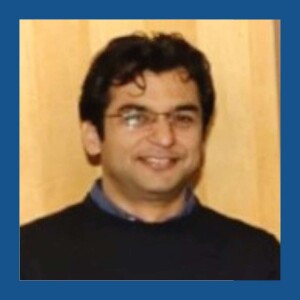
Thursday Jul 08, 2021
Thursday Jul 08, 2021
Hi! This week I have the pleasure of bringing you someone whose mission is to help graduate students and postdocs with their career development. As Director of UC Irvine's GPS-STEM Program, Harinder Singh achieves this transition support through different approaches, including training, mentoring, and networking. During our conversation, we talked about how he got interested and involved in conversations and organizations around the post-PhD career question and about his view on what the landscape is looking like today.
What you’ll learn about in this episode:
What Harinder did when he asked himself "Where do PhDs go?"The power of being part of graduate student and postdoc associationsHow Harinder busted the myth that getting involved in projects outside the lab hinders your productivityHow pairing academic training with career training increased faculty adhesion to the GPS-STEM ProgramWhy taking part student-led initiatives is an extremely enriching experience and how it brought Harinder to his current positionHow to fund your student-led symposia and other projects from your bench
Harinder Singh is Program Director, Graduate Professional Success in S.T.E.M. at UC Irvine. Previously, Harinder served as the Associate Director for the NIH-BEST funded program, GPS-BIOMED from 2018 2019. He earned his Doctorate in Cardiovascular biology from the Temple University School of Medicine, Philadelphia in 2014 and conducted Postdoctoral training in Neurosciences at the University of Illinois at Chicago from 2014 to 2018. Harinder served many executive roles in a Chicago based Scientist organization, CHIentist, dedicated to providing a networking platform for junior researchers & industry professionals. He was appointed to the Board of Directors of the science advocacy organization, Future of Research, with a mission to engage & empower early career scientists with evidence-based resources in improving the scientific research endeavor. As the leader of UC Irvine’s GPS-STEM program, Harinder is dedicated to finding solutions that broaden research training, foster relationships between academia and the private sector, and raise awareness on how academic discoveries advance society.
Thank you, Harinder Singh!
If you enjoyed this interview with Mark, let him know by clicking the link below and leaving him a message on Twitter:Click here to thank Harinder Singh on Twitter!Click here to share your key take-away from this interview with David!
Support the show on Patreon !
Or buy me a coffee :)
Harinder's pearls of wisdom:
“When you listen to this podcast and listen to me and David, you try to connect with me, do not just connect - write something in the brief note, short note. "Hello Harinder! It was wonderful listening to you for the Papa PhD podcast with David". If you liked the podcast, say that you liked it and you would like to keep in touch. There you go - my connection with you. In the future if you're applying to some job and you see that this is the company, had these other people who work in company, which you can actually see on LinkedIn, and then it will also tell you those people who are working, who they are connected to. You see that they are connected to me, now this is your gateway to getting into that company. Write a message - "Harinder, I saw that you are connected with this person, I'm applying to this position - would you be ok connecting me to them?" And when I see that you had written me a message in the past where you heard the podcast, and we connected, 99% of times, I'm going to respond to you. If I do not see a message or a history of past messages as to why you're connecting, I am not going to respond.”“If you don't have it, ask for it. If they are not doing it, you do it. You're scientists – you're entrepreneurial. You sit, read a paper, identify the void – it's almost like doing a market research. And now,
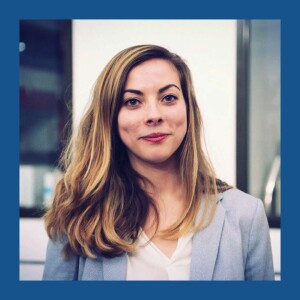
Thursday Jul 01, 2021
Thursday Jul 01, 2021
Contribue à la production de Papa PhD sur Patreon !
Ou ravitaille David en café :)
Cette semaine, j'ai le plaisir de t'apporter ma conversation avec Mathilde Maillard, créatrice du podcast "Bien dans ma thèse" et du talk show Twitch "Le doctorat part en live!" Une conversation entre deux podcasteur.e.s est souvent animée et dynamique. Avec Mathilde, le fait qu'elle est une influenceuse qui se dédie à la promotion du doctorat a rendu notre échange encore plus intéressant :)
Ce que tu apprendras dans cet épisode :
Le parcours atypique de Mathilde et l'intérêt d'un parcours interdisciplinaireL'intérêt de bouger entre stage, master et doctoratLes défis qu'apportent le COVID et le Brexit aux voyages pendant la thèseComment le podcast Bien dans ma thèse est néComment un doctorat nous prépare pour l'entrepreneuriatLes conseils de Mathilde Maillard pour être bien dans sa thèse même en temps de pandémieTu aimes Papa PhD ? Laisse-moi un commentaire ici - une courte phrase suffit ! Et inclus ton identifiant Twitter – comme ça je pourrai te remercier personnellement !
Mathilde Maillard est en troisième année de Doctorat au sein du laboratoire MATEIS à l'INSA de Lyon. Sa thèse s'intitule : Relation entre propriétés rhéologiques, mécaniques et imprimabilité de pièces mono et multi-matériaux céramiques réalisées par fabrication additives. En gros, elle utilise une imprimante 3D pour fabriquer des pièces céramiques qui seront utilisées dans le domaine biomédical.
Merci Mathilde!
Si cet entretien avec Mathilde Maillard t'a plu, fais-lui en part en cliquant sur le lien ci-dessous et en lui laissant un message sur LinkedIn :Clique ici pour la remercier sur LinkedIn !Clique ici pour partager avec David le principal message que tu retiens de cet épisode !
Télécharge la "Boîte à outils pour le doctorat" maintenant !
Les perles de sagesse de Mathilde :
« Moi, j'irais même un peu plus loin. Maintenant je trouve dommage les gens qui font toute leur scolarité, jusqu'au doctorat, au même endroit et qui font leur stage au même endroit. Et vraiment, moi je pense qu'il faut arrêter de penser comme ça, même si des fois, oui, c'est facile parce que les profs vous connaissent. Oui, c'est facile, mais en fait, ce n'est pas ça, et je pense qu'il faut aller au-delà de ça et, justement, encourager les étudiants à ne pas rester au même endroit, à ne pas faire leur stage au même endroit, à ne pas faire leur doctorat au même endroit. »« Oui, en France, il y a ce mouvement de parler de la startup, de rendre ça normal, de rendre ça possible et de dire aux gens "Vous avez les compétences, vous avez la possibilité de le faire." Malheureusement, encore une fois, ce qui peut freiner des doctorant.e.s, c'est toujours pareil - c'est l'équipe encadrante et que, malheureusement, parfois on peut se trouver face à des directeurs, directices de thèse qui sont complètement réfractaires à ce domaine-là. qui ne voient pas du tout l'intérêt de valoriser ses travaux de recherche autre que dans le domaine public. »
Les ressources de cet épisode :
Mathilde Maillard | LinkedInBien dans ma thèse | Site WebBien dans ma Thèse | YouTubeProgramme Jeunes Chercheurs Spécial Startup | Site Web
Tu aimeras aussi ces épisodes :
Elodie Chabrol – La passion pour la science et pour la vulgarisation : PapaPhD.com/33Elodie Cheyrou – Rapprocher science et société : PapaPhD.com/91Émilie Doré – Venir en aide aux doctorant.e.s en SHS : PapaPhD.com/112Martha Boeglin – Débloquer la rédaction de thèse : PapaPhD.com/96
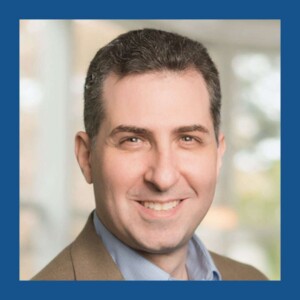
Thursday Jun 24, 2021
Thursday Jun 24, 2021
Support the show on Patreon !
Or buy me a coffee :)
Welcome to another episode of Papa PhD. This week I have the pleasure of sharing one of the longest interviews of the season, but also one of the most jam-packed with insights and advice on how to take control of your career as a PhD, be it in academia our outside of it. So be sure to have pen and paper before hitting play on this Papa PhD interview with Mark Herschberg!
What you’ll learn about in this episode:
Mark's academic journeyThe motivation behind his book - The Career ToolkitWhy time spent developing career skills is well investedYou shouldn't take your career decisions in a vacuum - start talking to people about their careers nowHow to network as an introvertThe cultural differences between academia and industryWhy you should negotiate compensation, not only salaryHow building and updating a career plan can help youHow to find your place in an organization where you're the first PhDThe importance of building your personal brand in today's market
Mark Herschberg is the author of The Career Toolkit, Essential Skills for Success That No One Taught You. From tracking criminals and terrorists on the dark web to creating marketplaces and new authentication systems, Mark has spent his career launching and developing new ventures at startups and Fortune 500s and in academia. He helped to start the Undergraduate Practice Opportunities Program, dubbed MIT’s “career success accelerator,” where he teaches annually. At MIT, he received a B.S. in physics, a B.S. in electrical engineering & computer science, and a M.Eng. in electrical engineering & computer science, focusing on cryptography. At Harvard Business School, Mark helped create a platform used to teach finance at prominent business schools. He also works with many non-profits, including Techie Youth and Plant A Million Corals. He was one of the top-ranked ballroom dancers in the country and now lives in New York City.You can learn where to purchase "The Career Toolkit: Essential Skills for Success That No One Taught You" at:www.TheCareerToolkitBook.com
Thank you, Mark Herschberg!
If you enjoyed this interview with Mark, let him know by clicking the link below and leaving him a message on Twitter:Click here to thank Mark Herschberg on Twitter!Click here to share your key take-away from this interview with David!
Mark's pearls of wisdom:
“Negotiations are a skill that you should learn. So imagine the following scenario: You get a job outside of academia, you take your first industry job. Maybe you're 30 years old. Let's say they offer you 80,000 dollars and you negotiate to 81,000. Not a massive lift, right? We can all imagine doing that. If you do nothing else, you just sit in that job the rest of your career, you spend another 35 years working at this one job – you just made 35,000 dollars. One negotiation, tiny lift – 35,000 dollars. Now, imagine that you don't just sit in one job, right? You, of course, takes other jobs. You get promotions, you negotiate those. Again, you negotiate for maybe just a few thousand more. These aren't heavy lifts, you're not some world class negotiator – you're just doing a little better. You can literally add tens of thousands, even hundreds of thousands of dollars to your lifetime income.”“I am naturally an introvert. Here's the thing – you think about that stereotype of a networker who does go to the conference and schmoozes everyone and gives out cards. Yeah, that's not networking. It's one way to do it, but that's not the only way. If you've ever had a friend, you know how to network. It is just building a relationship. Now, it doesn't mean everyone in your network is your personal fiend, right? There's some people who are my friends and they're in my network, there's some people we're just business contacts. We don't hang out on weekends, but we can call each other, reach out,
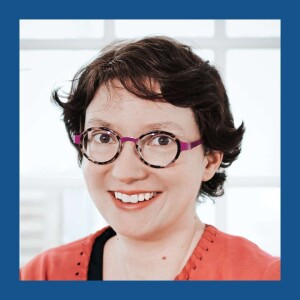
Thursday Jun 17, 2021
Thursday Jun 17, 2021
Contribue à la production de Papa PhD sur Patreon !
Ou ravitaille David en café :)
Cette semaine, je t'apporte une conversation où, avec Émilie Doré de Réussir son doctorat, on fait une radiographie des défis actuels de l'expérience de la thèse en sciences humaines et sociales (SHS) et où on discute des pistes à suivre pour offrir aux doctorant.e.s une expérience formatrice et davantage épanouissante.
Ce que tu apprendras dans cet épisode :
La réalité des thèses sans financement en SHSCe qui a mené Émilie à ne pas reconduire son contrat de postdoctoratL'état de la santé mentale des doctorant.e.s aujourd'huiPourquoi le modèle des sciences exactes ou naturelles ne foncionne pas pour un doctorat en SHSL'importance de trouver des espaces bienveillants pour échanger avec des pairs à propos de notre expérience du doctoratL'importance d'échanger le perfectionnisme et des échéances irréalistse par la confiance et la régularitéLes changements qui se font aujourd'hui dans la formation des encadrantsPourquoi la thèse en vaut la chandelleTu aimes Papa PhD ? Laisse-moi un commentaire ici - une courte phrase suffit ! Et inclus ton identifiant Twitter – comme ça je pourrai te remercier personnellement !
Emilie Doré a soutenu une thèse en sociologie en 2009 à l'Ecole de Hautes Etudes à Paris, puis elle a commencé une carrière de chercheuse par la voie classique : un post-doctorat. Pourtant, en 2012, Emilie décidé de trouver un chemin plus aligné avec sa vision et son rythme de vie ; elle est devenue formatrice indépendante auprès des doctorants. Son rôle ? Leur permettre d'oser exprimer leur créativité et leur singularité dans leur thèse - tout en suivant les règles du jeu académique. Sa mission : que la thèse soit pour les doctorants une expérience de plaisir intellectuel et d'affirmation personnelle !
Merci Emilie !
Si cet entretien avec Emilie Doré t'a plu, fais-lui en part en cliquant sur le lien ci-dessous et en lui laissant un message sur LinkedIn :Clique ici pour la remercier sur LinkedIn !Clique ici pour partager avec David le principal message que tu retiens de cet épisode !
Télécharge la "Boîte à outils pour le doctorat" maintenant !
Les perles de sagesse d'Emilie :
« Le plainte qui revient souvent c'est justement cette question du temps, à savoir "je suis trop lent, je suis trop lente – je n'arrive pas à tenir mes échéances." Et ça, c'est surtout quand on s'approche de la fin de la thèse, où la pression monte, bien sûr. Et ce qu'il y a derrière, quand on creuse un peu, c'est que le doctorant peut-être qu'il a une famille, peut-être qu'il doit travailler à côté, dans le cas des doctorantes, il peut y avoir des maternités qui arrivent. En fait, il y a la vie à coté de la thèse et ils aimeraient bien, eux, être dans un monastère, dans une bulle, et faire la thèse et ne faire que ça, s'y consacrer. Et, alors, peut-être qu'ils se disent "dans ces cas-là j'y arriverais." Mais en réalité, ça ne peut pas être comme ça. La thèse, elle se fait au sein de notre vie et elle doit se faire en harmonie avec notre vie. »« La diversité dans la recherche, elle existe, à la base, fortement. Et puis elle existe pour les maitres de conférences – un peu moins, mais quand même, encore – et pour les professeurs, c'est-à-dire qu'en fait, plus on va monter dans les échelons, plus la diversité se perd. C'est-à-dire que ça infuse lentement, en réalité. »« En étant plus ouverts, on ne va pas perdre en rigueur intellectuelle. On peut tout à fait avoir une recherche plus ouverte, qui donne plus d'espace à la créativité, à la singularité, à la liberté des doctorants et qui gardera sa qualité. Et, même, qui peut être plus qualitative, parce que ça n'est pas contradictoire avec la rigueur des raisonnements, de l'argumentation que peuvent mettre en place ces doctorants. »
Les ressources de cet épisode :
Emilie Doré | LinkedInEmilie Doré | FacebookRéussir Sa ...
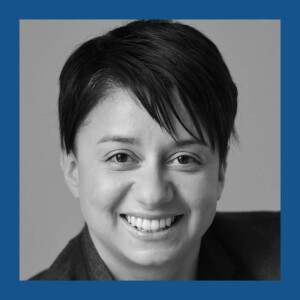
Thursday Jun 10, 2021
Thursday Jun 10, 2021
Support the show on Patreon !
Or buy me a coffee :)
This week on the show, I bring you a very lucid and pleasant conversation about how the graduate school experience could improve with Monica Granados, Policy advisor at Environment and Climate Change Canada. A lot of the conversation revolved around a subject that I'm passionate about - how can we change the PhD experience so it works for all candidates, effectively launching them towards successful academic, but also non-academic careers. During our conversation, Monica shared her reflections on this issue, basing them on her own experience going through her PhD and her postdoc.
What you’ll learn about in this episode:
Monica's path from PhD to postdoc, to her current position in a governmental institute
Her views on paths toward adapting graduate programs to the current reality of the academic job market
The importance of looking for a mentor as you start your graduate studies, especially if you are first generation graduate student
How Monica experienced the stigma that still exists around deciding to leave academia
How Monica sees the explicit and less explicit skills developed during her PhD that she leverages in her current position
What a privileged time the PhD is to learn everything that interests you
How important it is to have a community outside the lab for your personal growth, for your mental health, and for your networking
Dr. Monica Granados is committed to making science more open and accessible. She is open science and data policy advisor at Environment and Climate Change Canada, she is on the leadership team of PREreview working to bring more diversity to peer review, she’s a Frictionless Data Fellow and is on the Board of Directors of the Canadian Open Data Society.
Thank you, Monica Granados!
If you enjoyed this interview with Monica, let her know by clicking the link below and leaving her a message on Twitter:
Click here to thank Monica Granados on Twitter!
Click here to share your key take-away from this interview with David!
Monica's pearls of wisdom:
“The point of a PhD cannot be to become a professor, it can be an option. The PhD is an amazing time where you get to ask really cool questions and meet a lot of other passionate people who are interested in asking questions. And you learn how to do research and how to think through problems, and think through experiments to try to answer those questions. And it's learning how to do those things - that's what you're doing in a PhD. Your outputs are these papers becaust that's what academia tells you that those are the outputs that should be, which, for the record, are not even the best way for us to be communicating what our results are. But it's you learning those elements - that's the output of a PhD, that's what you're getting into a PhD to learn.”
“Learning how to do science is really important and I think one of the major things that comes out of your PhD, but what gave me this incredible career is this thing that I was doing on the side, that wasn't being recognized, and that I kind of had to do it in secret. And I think that's sort of the crux of what we should discuss, and that is how do we build an environment, how do we build academic programs that allow you equal time for both and recognize both. I would like to see incoming graduate students outlining their work plan - you know, they talk about how many publications they want to do or how many collaborations they want to be a part of, but also... it should also be "Well, I also want to learn how to code and I also want to learn about science communication". And having those conversation initially, with your supervisor, so that that becomes part of your program. If I could redo it, that's what I would have done. Because sometimes I felt guilty that I was doing these things, even though in the end that's what gave me my career!”
“Think about all these skills that you're gaining during a PhD and think about how you ca...
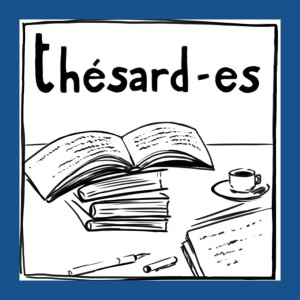
Thursday Jun 03, 2021
Thursday Jun 03, 2021
Contribue à la production de Papa PhD sur Patreon !
Cette semaine, j'ai l'énorme plaisir de t'apporter les deux chercheuses derrière Thésard-es, un podcast sur la vie de thèse dans le domaine des sciences sociales. Au fil de notre conversation, Jeanne Perrier et Marianne Le Gagneur ont partagé avec moi non seulement leur expérience en tant que chercheuses, mais aussi les questions qui les passionnent à propos du doctorat tel que le vivent les thésardes et thésards en France aujourd'hui.
Ce que tu apprendras dans cet épisode :
Ce qu'est le podcast Thésard-esCe qu'est une thèse CIFRE et quels sont ses avantagesLes problématiques particulières aux thèses en sciences socialesVos compétences insoupçonnées développées au long de votre doctoratLe besoin de mieux coordonner les sciences sociales et le sciences humainesL'autoévaluation des connaissances pendant la thèse - est-ce qu'elle devrait être obligatoire?La réalité des thèses sans financementQuelle place occupe un.e doctorant.e en sciences sociales dans une entreprise dans le cadre d'une thèse CIFRE ?Tu aimes Papa PhD ? Laisse-moi un commentaire ici - une courte phrase suffit ! Et inclus ton identifiant Twitter – comme ça je pourrai te remercier personnellement !
Thésard-es est un podcast sur les doctorant-es en sciences humaines et sociales, qui les fait parler de leur recherches en cours et de leur expérience de la thèse. Il est réalisé par Marianne Le Gagneur, doctorante en sociologie, et Jeanne Perrier, docteure en sciences politique.
Merci Jeanne et Marianne !
Si cet entretien avec Jeanne Perrier et Marianne Le Gagneur t'a plu, fais-leur en part en cliquant sur le lien ci-dessous et en leur laissant un message sur LinkedIn :Clique ici pour les remercier sur Twitter !Clique ici pour partager avec David le principal message que tu retiens de cet épisode !
Télécharge la "Boîte à outils pour le doctorat" maintenant !
Les perles de sagesse de Jeanne et Marianne :
« Jeanne Perrier : Une thèse en sciences politiques, en sociologie, en géographie, c'est des domaines qui restent très dans le livres, en fait. Et on a l'impression qu'il n'y a pas beaucoup de domaines d'application. Et ce qui, mois aussi, m'a amenée, après la thèse, justement, à me poser beaucoup de questions sur "qu'est-ce que je fais avec ça?", parce que je n'étais pas forcément sûre de vouloir continuer dans le monde académique. Marianne Le Gagneur : Et c'est aussi un autre sujet qui va avec la question des financements, c'est ces thèses qui s'allongent pour aller jusqu'en cinquième, en sixième année, parce qu'en fait on attend de la thèse, maintenant, énormément. Il faut des publications, il faut plein de chose, en plus, de la thèse, ce qui fait qu'en fait ça dure très longtemps et que les gens ont du mal è comprendre pourquoi... Est-ce qu'on est en train de ne pas avancer? Est-ce qu'on est en train de prendre du retard? À la fois oui, mais en même temps, on n'a pas le choix que de faire des thèses très longues, quelque part. »« Jeanne Perrier : Moi, de ce que j'ai pu entendre, en tout cas, dans mon entourage, c'est qu'il y a quand même un gros fossé entre ceux qui décident de continuer la recherche académique et ceux qui ne veulent pas. Et, du coup, pas forcément considérés de la même manière, même au sein de leur laboratoire. C'est-à-dire qu'il y a quand même un espèce d'a priori pour ceux qui ne veulent pas continuer dans le milieu académique et qui disent "Eh bien, en fait, moi, je veux aller dans le privé." Je trouve que la considération n'est plus la même et ça aussi, ça pose problème, parce que ça voudrait dire qu'il y a une carrière qui est moins bien que l'autre ou qui est moins prestigieuse que l'autre. Marianne Le Gagneur : Et en plus de ça il y a aussi beaucoup de gens qui s'orientent vers la thèse délibérément, pour mettre de côté des carrières dans le monde du privé, où la thèse devient,
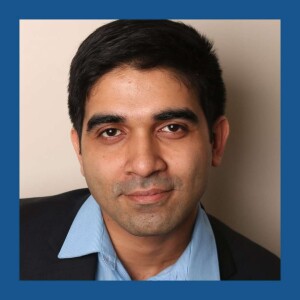
Thursday May 27, 2021
Thursday May 27, 2021
Get the Papa PhD Tool kit !
Hi! This week on Papa PhD, I’m bringing you my conversation with Parag Mahanti. "We recorded this in November, during Parag’s Thanksgiving break. Since then, India has been severely hit by the second wave of the COVID pandemic, and many lives have been lost. Parag wanted this episode to be dedicated to especially to Late Dr. Ashim Chakravarty. If you want to support the fight against COVID in India, please contact Parag - @ParagMahanti on Twitter. I'd also like to note that Parag gave this interview on Thanksgiving, while he was with his close ones, so you might hear some background noise throughout. But please bear with us, because the nuggets he shared are absolutely worth it. For example, we talked about Parag's experience interviewing for jobs – early after his PhD, but also in his most recent career moves.
What you’ll learn about in this episode:
Not everyone that enrolls into a PhD is bound to do researchNot all temperaments thrive in the academic research timeframe, in terms of results and their impact on society at largeThe positive impact being part of clubs and taking extracurricular courses can have on your mental healthParag's way of making time for extra-curricular projectsThe advantages and disadvantages of choosing a well established, tenured professor, versus a young professor vying for tenure as a PhD supervisorParag's experience of the consulting pathThe advanteges of doing informational interviews when you don't need a jobRejections are not about your abilities, they are about a mutual fit that didn't happen + you should always ask for feedback after your application was rejectedWhy advice from a community is much more valuable than the advice you get from a single personThe job hunt is a process - you get better at it as you go
Parag Mahanti received his Ph.D. in Chemistry and Chemical Biology in 2013 from Cornell University where his research was focused on nuclear hormone receptors, steroid signaling, and metabolomics. Since then he has moved careers thrice first to consulting then to finance, and currently in pharma.Outside of life sciences and biopharma strategy, Parag’s passions include music, both playing and listening, biotech startups and understanding the evolution of scientific reasoning and leadership skills. Parag takes an active interest in career progression of PhD students and has created a fast growing LinkedIn Group that currently has ~7500+ members. Parag also serves as a mentor for the Entrepreneurship Lab (ELabNYC) originally launched by the New York City Economic Development Corporation to provide mentorship to biotech/health-tech start-ups in the New York area.
Thank you, Parag Mahanti!
If you enjoyed this interview with Parag, let him know by clicking the link below and leaving him a message on Twitter:Click here to thank Parag Mahanti on Twitter!Click here to share your key take-away from this interview with David!
Parag's pearls of wisdom:
“Parag – Once I came here and I enrolled into a PhD programme, I was like, "Oh! This is awesome! This is Super cool, smart thinking stuff and I can thrive in this." And I started doing that for first year and second year, and then by third year, I was like, "No way...". Like, I like the smart thinking part of it, I like the science, but I don't want to do this for the rest of my life. And I think the main reason was, I love the science. In fact, I've stayed very close to the science most of my career, but it was the impact of it, right? Like, for some reason, I always thought the stuff that I was doing, you would see maybe a return or a clinical development of it in, like, 10, 15, 20 years. So there's no immediate translation of this work. David – "Talk about delayed gratification, there, right?" Parag – Exactly!”“Parag – The same guy had told me that any job, if you don't like the interview process, chances are you won't like the job.
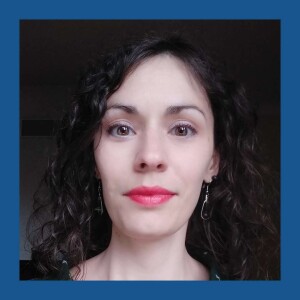
Thursday May 20, 2021
Thursday May 20, 2021
Cette semaine, je vous apporte mon entrevue avec Marie Itoiz. Marie a un trajet en histoire et a partagé avec moi le cheminement qui l'a menée de son doctorat au poste qu'elle occupe aujourd'hui chez Capgemini comme consultante fonctionnelle.
Ce que tu apprendras dans cet épisode :
Les différents tournants du trajet de Marie ItoizLe master comme tube à essais avant le doctoratPourquoi il faut profiter des ateliers et formations offerts par votre programme/département/universitéL'importance d'avoir des gens bienveillants envers nous dans notre tissu socialQue ce n'est pas normal d'encaisser seul un excès de pression et de doute, ni du harcèlement, en tant que doctorant.eL'intérêt de travailler avec des organismes comme l'APEC, une fois qu'on a été cadre ou bac +8, et de participer à des forums pôle emploiConseil entrevue d'emploi: préparation, préparation, préparationTu aimes Papa PhD ? Laisse-moi un commentaire ici - une courte phrase suffit ! Et inclus ton identifiant Twitter – comme ça je pourrai te remercier personnellement !
Actuellement, Marie Itoiz aime dire avec humour qu'elle entame sa troisième carrière professionnelle. Elle a été enseignante dans le secondaire en science de la vie et de la Terre, puis jeune chercheuse en histoire de la géologie avec un passage dans la valorisation du patrimoine scientifique instrumental.A présent, Marie est consultante fonctionnelle chez Capgemini, une entreprise de services du numérique.
Merci Marie Itoiz !
Si cet entretien avec Marie Itoiz t'a plu, fais-lui en part en cliquant sur le lien ci-dessous et en lui laissant un message sur LinkedIn :Clique ici pour remercier Marie sur LinkedIn !Clique ici pour partager avec David le principal message que tu retiens de cet épisode !
Télécharge la "Boîte à outils pour le doctorat" maintenant !
Contribue à la production de Papa PhD sur Patreon !
Les perles de sagesse de Marie :
« J'ai essayé de le faire d'une certaine manière et c'est vrai que c'est très difficile de le faire quand on est en thèse, parce qu'on a beaucoup d'impératifs. Et je pense qu'on en a encore plus quand on est en science, que ce soit en biologie, comme toi, ou en physique, ou quoi que ce soit. C'est encore plus difficile de dégager du temps par rapport aux contingences qu'imposent soit les directeurs de thèse, soit les encadrants, de publication d'articles, d'expériences, etc. Et, au contraire, en fait, ces trois années-là, je l'ai découvert par la suite sur un petit poste que j'ai occupé l'année dernière, sur l'encadrement du doctorat, et il y a tellement de possibilités. De formation, de prise de contact à l'entreprenariat, de possibilités de faire des stages, aussi. Enfin, c'est tellement riche et surtout, en fait, c'est gratuit! Quand on est étudiant, ce n'est pas du tout négligeable. Et avec des personnes qu'on rencontre, on peut commencer à se créer un réseau. On peut aussi, en fait, prendre des contacts pour plus tard. »« C'est là où je me suis dit – bon, de toute façon, la voie de la recherche pure était très compliquée, dans le sens où obtenir un poste en France, c'était difficile. C'est vrai que c'est une idée qui m'a un peu effleuré l'esprit, mais très rapidement, je l'ai remisée de côté, puisqu'elle était vraiment impossible à réaliser, ou alors dans beaucoup, beaucoup d'années et avec beaucoup d'effort, ce que je n'étais pas forcément prête à accepter. Et je me suis dit - bon, on va aller voir du côté médiation scientifique, valorisation, qu'est-ce qui se passe. Et puis, une fois qu'on se dit "on va voir de l'autre côté", eh bien, pourquoi pas ouvrir la porte en grand et se dire "eh bien, on va peut-être aller voir aussi dans des entreprises privées, qu'est-ce qui me plaît."? »
Les ressources de cet épisode :
Marie Itoiz | LinkedIn
Tu aimeras aussi ces épisodes :
Amandine Bugnicourt – Emploi et doctorat en 2021 : PapaPhD.
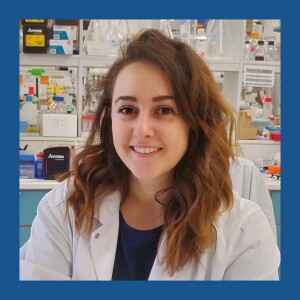
Thursday May 13, 2021
Thursday May 13, 2021
Get the Papa PhD Tool kit !
This week on the show, I'm talking with Sarah Nersesian, a PhD researcher who pursues many passions and interests in life, while remaining a scientist at heart. During our conversation, we talk about making decisions during your academic journey, about finding ways of nurturing your creative side during your PhD, and about the important role mentors can play in your life, especially as a woman in academia.
What you’ll learn about in this episode:
The importance of choosing an academic path that fits youHow you can gain PhD-adjacent experience through internshipsSarah's charged schedule and how she finds balance in itHow dividing her self-worth between her different centers of interest helps her deal with failureWhat launching a business during your PhD can look likeHow finding a mentor can help you launch your projectHow small startup grants could help you take the first stepsDo you enjoy Papa PhD? Leave me a comment here - one short sentence is enough! And be sure to include your Twitter handle – that way, I can thank you personally! Or if you prefer, fuel my long audio editing and notes page writing nights by buying me a coffee! Just click on the button below and voilà! An espresso, a cappucino, a latte – you decide. I'll be immensely grateful.
Buy me a coffee !
Sarah Nersesian is a passionate researcher who loves to share scientific knowledge through illustrations and other visual communication strategies. She obtained her MSc in Biochemistry and Cell Biology at Queens University and is currently completing her Ph.D. in Microbiology and Immunology at Dalhousie University focusing on exploring the impact of intra-tumoural immune cells on tumour development and treatment responses.Over her academic journey, she has published her research in journals including, Scientific Reports, Oncoimmunology, Frontiers of Immunology, The Journal for Immunotherapy of Cancer and the British Medical Journal. Many of these publications were accompanied by her custom scientific illustrations. With her unique expertise combining scientific communication strategies with illustration and graphic design, Sarah founded Designs that Cell in 2017. Sarahs vision for the company was a space where scien-artists such as herself and others could combine their scientific foundation with their visual communication skills to illustrate the ideas of other members of the scientific community.She is a senior illustrator at Designs that Cell and oversees all its operations.
Thank you, Sarah Nersesian!
If you enjoyed this interview with Sarah, let her know by clicking the link below and leaving her a message on Twitter:Click here to thank Sarah Nersesian on Twitter!Click here to share your key take-away from this interview with David!
Sarah's pearls of wisdom:
“You know, if somebody looked at my CV, they would be super impressed and, you know, would praise X, Y, and Z. But if I honestly put together a failure CV, it would be like a novel. It would be thicker than the Bible. The reality is, I've had so many people close doors in my face. I've had so many people question why I've been at a table, why I've been doing something. And I think having that worth, that self-worth divided and not having it into just your research project, like you were saying, David, is so important, because now I don't look at myself as like, "Okay, I'm a scientist. And if I'm not a scientist, then I'm nothing else." It's – no, I'm a scientist, and I'm an entrepreneur, and I'm an artist, and I'm a role model, and I'm a feminist, and I have these identifiers, you know? And, like, I'm a wife now and a dog mom. And there's all these things that I hold my self-worth into. That way, if I question something, it's not everything.”“It's not that male professors can't understand, but at the same time, they haven't carried children, thay haven't had to balance the expectations of being a ...
